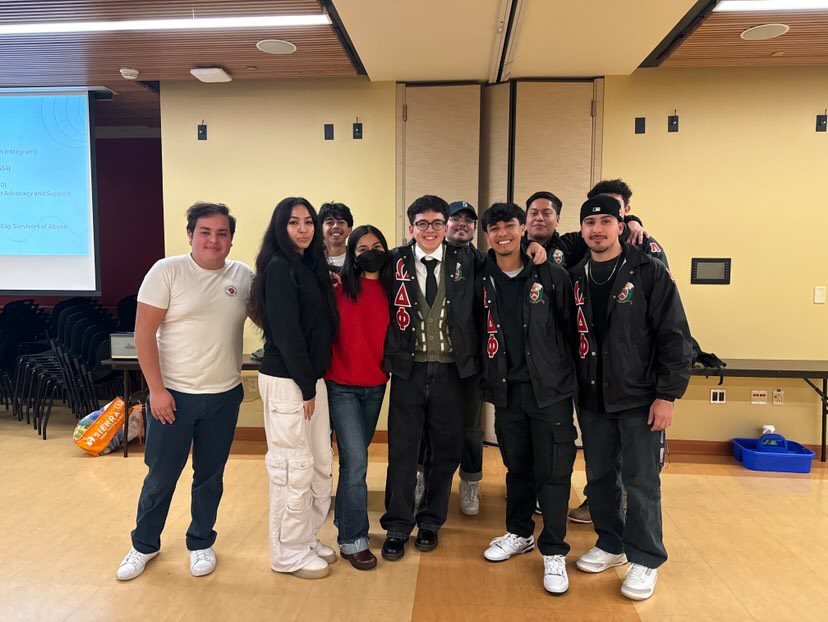With only six members, the University of Washington Latine Student Union (UWLSU) in Seattle has worked from the ground up to rebuild a space for the Latine community on campus.
UWLSU hosts social events – such as trivia nights, game nights and mixers — and helps facilitate various outings so students can meet others with similar cultural backgrounds and interests.
Although the group is said to have existed since the early 2000s, the organization was not active after the pandemic hit, according to co-presidents Luisa Ortega and Denice Melendez-Macin.
Melendez-Macin, a fourth-year law, societies, and justice and political science major, became involved in UWLSU as a freshman.
“I remember having 67 cents in the bank account, and I was like, ‘oh my gosh, we’re literally starting from square zero right now,’” Melendez-Macin said. “Since then, I’ve just grown to love … creating a space for Latine students of all countries, not just Mexico. Even though Mexico is the majority of [the] student population, [and of the] Latine population here.”
Ortega, a third-year design and communication major, also joined UWLSU as a freshman. She was trying to find community among UW’s roughly 50,000 student population, a task she said felt overwhelming.
“At the end of my freshman year, it was the one organization that had opened a lot of doors for people to get involved,” Ortega said.
Ortega applied to be the vice president of communication for the group that year, in part because she realized she was in the right place to meet a new group of people.
“There’s a lot of reasons why this work specifically is important to me,” Ortega said. “Not just in a sense of like fostering and creating a space for my community [to] come together, but I also think that what’s nice about LSU is that it’s kind of like a clean slate.”
When asked about goals and plans for the year, Melendez-Macin and Ortega stressed the importance of making the community space about what the members want by using their meetings to connect with each other and hear suggestions from people.
However, the organization is still working on many projects, such as collaborations with other organizations at the Samuel E. Kelly Ethnic Cultural Center (ECC) at UW.
According to its website, the ECC is “designed to empower and support historically marginalized students.”
“With BSU [UW Black Student Union] we do collab meetings each quarter, ” Ortega said. “Last year, we did one on colorism within our communities. And it was more like a community dialogue where we shared our different experiences with that.”
Earlier this month, in collaboration with Omega Delta Phi (ODPhi) UW, the multicultural fraternity on campus, UWLSU hosted “Machismo and Gender-Based Violence in Latin America.”
Together with members of the multicultural fraternity, the two groups hosted a discussion on campus, where attendees talked about toxic masculinity, also known as machismo.
David Guillen, a fourth-year political science major, is the vice president of campus affairs for the Latino student group, and a member of the fraternity.
He first suggested bringing the two community-rooted organizations together for an event to discuss large issues from a cultural and political lens.
“I was really interested in the idea of talking about machismo and gender-based violence,” Guillen said. “I think we [UWLSU] addressed it before, about two years ago, but we still haven’t addressed it recently, and I felt it was a good stepping stone to kind of push the community to talk about … tougher issues.”
Guillen believes fraternities, in particular, should tackle topics that some might consider sensitive or difficult to talk about.
“I think this [was] also a good opportunity for them to learn about the kind of theoretical causes behind machismo and gender-based violence,” Guillen said. “I want them to have a discussion not only with themselves but also within the broader Latine community.”
At the discussion, Ortega and Guillen presented a slideshow on the history of machismo and gender-based violence but eventually turned the conversation over to the groups. He challenged participants to think about their own personal experiences and how they could help change the status quo.
“I feel like I was able to get a lot out of this,” Aaron Reyes, a participant and ODPhi’s president, said. “Not just from the presentation but also being able to just listen to everybody else and their own experiences. I feel like that [also plays] a big part because we can only learn so much just from reading.”
As a presenter for the night, Ortega made sure to highlight each table’s discussion for the larger group and focused on making new members of UWLSU feel included.
“What is really exciting to me about LSU is how it can bring people together, and people have had a lot of different experiences,” Ortega said. “Some people have grown up in very, very white towns, and that’s the background they come from. And for some people, this is the first space that they have where it’s like, ‘oh wow, I’m surrounded by people who have this shared context.’”
